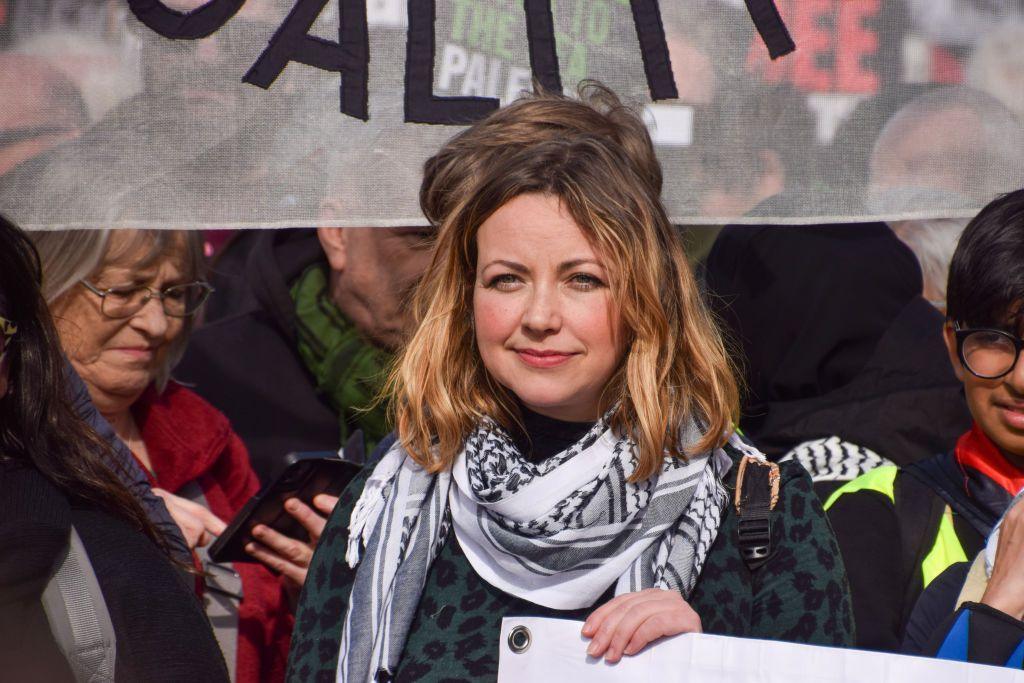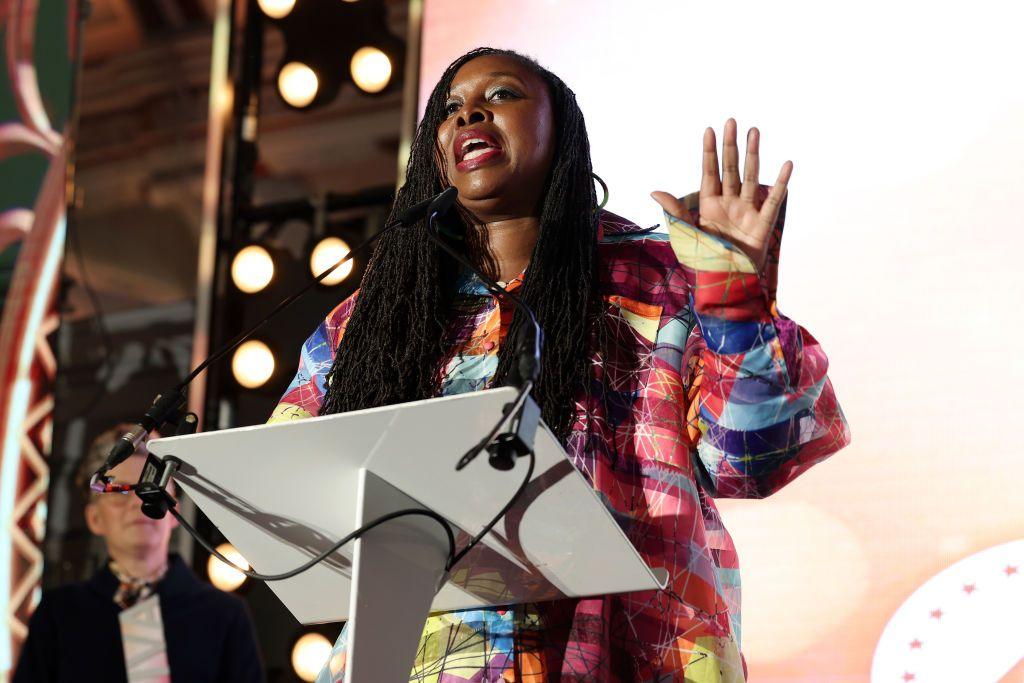Hay Festival suspends Baillie Gifford sponsorship

Charlotte Church has attended protests calling for a ceasefire in Gaza
- Published
Hay Festival has suspended its sponsorship deal with management investment company Baillie Gifford, following controversy over the latter’s links with Israel and fossil fuel firms.
The news comes after artists including Charlotte Church and Nish Kumar pulled out of appearing at the prestigious festival in protest at the deal.
Church is among celebrities who have joined calls for a ceasefire after Israel launched a military campaign to destroy Hamas in response to the group's cross-border attack on southern Israel last year.
Julie Finch, Hay Festival’s chief executive, said the decision was made “in light of claims raised by campaigners and intense pressure on artists to withdraw”.
'Artwashing and greenwashing'
She added: “Our first priority is to our audience and our artists. Above all else, we must preserve the freedom of our stages and spaces for open debate and discussion, where audiences can hear a range of perspectives.
“We are grateful to all those artists, partners and audiences who engage and contribute to the conversation, on stage and off.”
Earlier on Friday, Ms Finch said they were continuing “to engage with Baillie Gifford and other arts partners to resolve this”.
Baillie Gifford said the suggestion that it "is a large investor in the Occupied Palestinian Territories is seriously misleading".
In her statement posted on Instagram, external on Thursday, Church, a singer and pro-Palestinian campaigner, said she was boycotting "in protest of the artwashing and greenwashing that is apparent in this sponsorship".
"Your art festival is not more important than the lives of Palestinian children and the future of healthy ecosystems on earth," she wrote on social media.
"If the art world continues to take this dirty money, we all become complicit."
That came after comedian Kumar posted a statement from Fossil Free Books, which is leading the campaign, adding the words: "Love the festival and the people that work in it, but this was the right decision for me."
A Fossil Free Books organiser described the decision by Ms Finch as showing "the power we have when we unite as workers".

MP Dawn Butler was among those withdrawing from Hay
Other speakers who had pulled out included Labour MP Dawn Butler, Labour peer Baroness Shami Chakrabarti and economics author Grace Blakeley.
Others like George Monbiot chose to appear at the festival on Thursday, but in a clip posted by the festival, he said he had chosen to go ahead with his session because Hay is "a good cause" and "because this thing that we're protesting against, we are all deeply embedded in".
"We can't just point to one instance of this Earth-eating, people-eating system and say, 'That and that alone is a problem'. We have to deal with the whole thing," he told the audience.
'Seriously misleading'
Fossil Free Books, launched by literary industry professionals, said Baillie Gifford invests in companies "linked to the Israeli military" and Israeli settlements in the occupied West Bank, as well as a number of major fossil fuel companies.
The company is a large investor in several multinational technology companies, such as Amazon, Nvidia and Meta, which have "commercial dealings with the state of Israel that are tiny in the context of their overall business", it said.
It is also a "small" investor in "three companies that have been identified as having activities in the Occupied Palestinian Territories", it said, adding: "We are committed to responsibly analysing and engaging with the companies in which we invest. This work is ongoing and progress has been made."
However, it said it was the responsibility of its clients to make "subjective ethical situations relating to sectors (such as fossil fuels) or countries (such as Israel and the Occupied Palestinian Territories)".
"We are not able to make exclusions of that nature based on our own ethical judgements, or in response to pressure from outside groups."
Baillie Gifford added that it was "not a significant fossil fuel investor", with 2% of its clients’ money invested in companies with some business related to fossil fuels.
It said it was a "long-standing supporter of literature and the arts... driven by our contention that we should contribute to the communities in which we operate, in the hope that the organisations we work with gain lasting benefits".
Fossil Free Books has said the 2% figure equates to between £2.5bn and £5bn.
Church wrote: "This is many times more than the combined net worth of everybody involved at the Hay Festival. 'Only 2%' is not good enough."